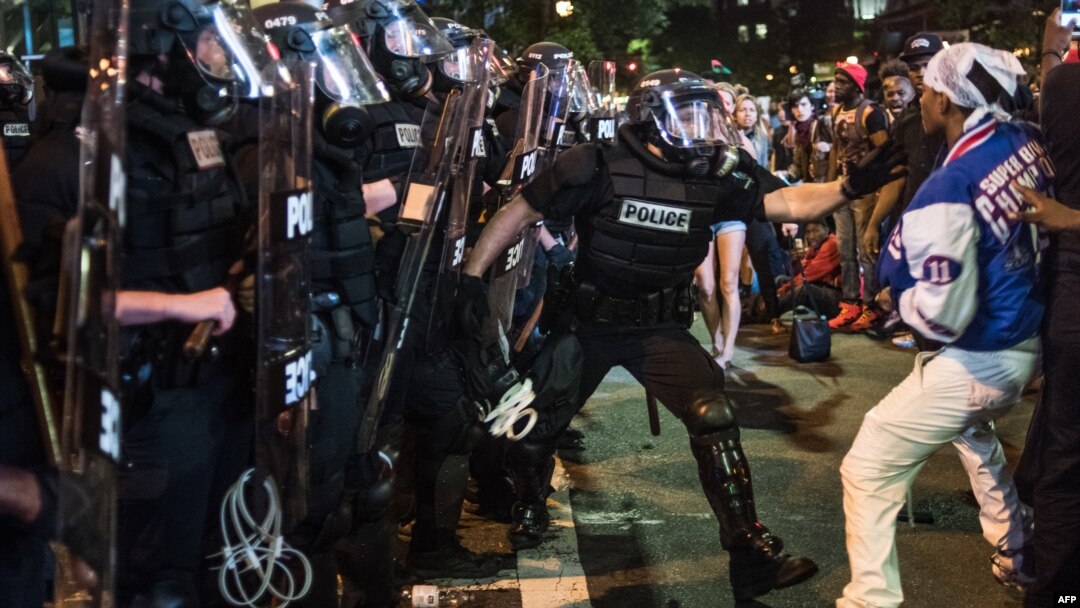At 11:00 p.m. EDT (0300 GMT) on Wednesday, North Carolina Governor Pat McCrory declared a state of emergency amid a second night of unrest following the fatal police shooting of a black man.
The circumstances surrounding the shooting of Keith Lamont Scott, a 43-year-old father of seven, remain in dispute: Authorities say Scott was shot after refusing police orders to drop his handgun. His family and a witness say he was holding a book, not a firearm, when he was killed.
Below are details on what the state of emergency means:
- The North Carolina state of emergency applies to the city of Charlotte and Mecklenburg county. It remains in effect until rescinded by the governor.
- It gives the state permission to send the state's National Guard to Charlotte to provide support for the State Highway Patrol and local law enforcement. It also allows the governor to use contingency and emergency funds.
- By declaring a state of emergency, the governor has the flexibility to impose a curfew or a ban on the sale of alcohol and firearms — neither of which has happened in Charlotte.
- A state of emergency can be declared state-wide or locally.
In the case of a natural disaster, local officials must declare a state of emergency in their jurisdiction in order to tap into state or federal funding after the disaster.
- North Carolina officials have previously declared states of emergency for racial unrest. In 1975, for example, the mayor of Hamlet issued a state of emergency following the arrest of a young black woman who said she was shot by a white policeman.
- Then-governor Jim Hunt declared North Carolina's first state-wide state of emergency in 1966, because of Hurricane Fran.
- A state of emergency has to be declared in order for a state to seek any federal reimbursement, which is more often the case after natural disasters.





